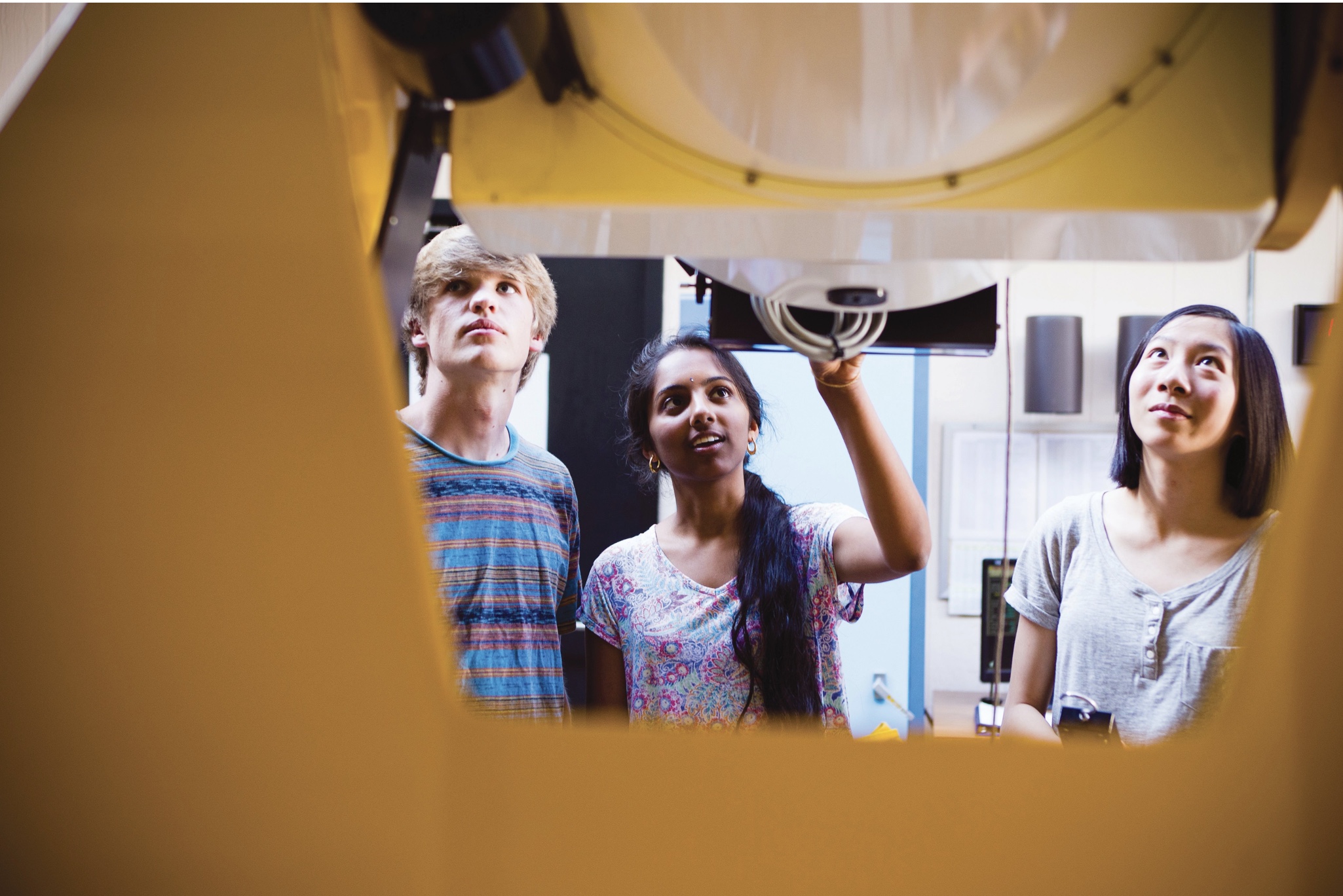GCSU joins prestigious list of schools offering summer science for high schoolers

GCSU joins prestigious list of schools offering summer science for high schoolers
Georgia College & State University is one of three new schools in partnership this summer with SSP International which has provided stimulating and extensive science research opportunities for motivated high school students since 1959.
The 5 1/2-week residency program at Georgia College began June 16 and runs through July 24.
Thirty-six high achievers signed up from 15 states and five nations. They’ll be given challenging instruction and research projects in astrophysics, including hands-on training on the university’s Pohl Observatory telescope to detect incoming asteroids.
“Teaching for the Summer Science Program is an inspirational opportunity to interact with talented high school students,” said Dr. Donovan Domingue, professor of physics and astronomy at Georgia College and academic director for the university’s summer program.
“Having the program at GCSU will introduce generations of future scientists to the resources, personality and spirit of our campus. Ideally,” he said, “the campus will leave positive impressions and expand GCSU’s reputation in the sciences.”
Participants in the Georgia College program come from California, Connecticut, Florida, Georgia, Illinois, Indiana, Massachusetts, Michigan, New Jersey, New York, Oregon, Tennessee, Texas and Washington, as well as Turkey, Brazil, Northern Mariana Islands and China.
The Summer Science Program is considered the longest-running, research-based summer education program for high schoolers with rigorous, collaborative experiment-based study in astrophysics, biochemistry, genomics and synthetic chemistry.
By adding Georgia College, Georgetown University and Southwestern Oklahoma State University to its list of longstanding schools, like Purdue University, SSP International doubled its number of participants this summer to nearly 400.
“These new partnerships will reach even more deserving participants, particularly first-generation students, as well as Black, Latino and low-income students, increasing access to high-quality science education for those historically underrepresented in STEM,” according to the organization’s website.
SSP also provides stipends to students requiring financial assistance to support participants who might otherwise miss out on the opportunity, because they need to earn money during the summer.
An article in Higher Ed Dive revealed a report showing high school students behind in math and science. The National Science Board found “vast differences in performance based on race, ethnicity and socioeconomic backgrounds.” Taking STEM courses in high school increases a student’s chances of going to college and finding employment. Summer science programs, like SSP International, equip students “who lack exposure to traditional academic environments,” giving them the tools to build strong relationships with mentors, work collaboratively, communicate effectively and advocate for themselves—ingredients that lead to academic and social success.
Georgia College participants will live at Bell Hall, eat in the Maxwell Student Union dining hall and do lab and coursework in Herty Hall. This includes hands-on exploration with a 24-inch Corrected Dall-Kirkham (CDK 24) Astrograph telescope that opens to the night skies from the university’s domed Pohl Observatory.
A typical day includes class instruction or computer lab time before lunch. In the afternoons, participants work together on research projects and problem sets. In the evenings, students will have rotating turns using the observatory telescope.
Donovan will teach astrophysics, along with Georgia College Physics Associate Professor Dr. Hasitha Mahabaduge. They’re joined by Dr. Dario Carbone, assistant professor of physics at the University of the Virgin Islands and Dr. Nicole Ice, a math teacher at Wheeler High School in Marietta, Georgia, who will be the site director in charge of residential life.
Senior Evan Dunnam of Acworth, Georgia, a computer science major and physics minor at Georgia College, will be a teacher assistant with two other students from Harvard and Ohio State Universities. Another Georgia College Bobcat—junior physics and math double major Madeline Shea of Washington—will be a teacher assistant for the SSP program at New Mexico State University this summer.
“It is an absolute joy to work with these highly motivated participants. It is a great opportunity not only to teach and guide them, but also to reinvigorate ourselves,” Mahabaduge said. “These types of international programs bring wide exposure to GCSU, and it helps us to recruit a diverse group of students.”
Instruction in computer science, physics and astronomy will prepare participants to collect telescope images, using them to determine the orbits of near-earth asteroids.
“This will culminate in an effort to discover the statistical probability of asteroids colliding with various solar system bodies, when the Southwest Research Institute completes a study with them here at GCSU,” Domingue said. “Two scientists from SwRI will introduce computer simulations that allow participants to see the orbits of their asteroids as they evolve into the future, based on chance gravitational interactions with other planets.”
Photo: SSP Participants at Sommers–Bausch Observatory at Colorado University Boulder. Photo Credit: SSP International.